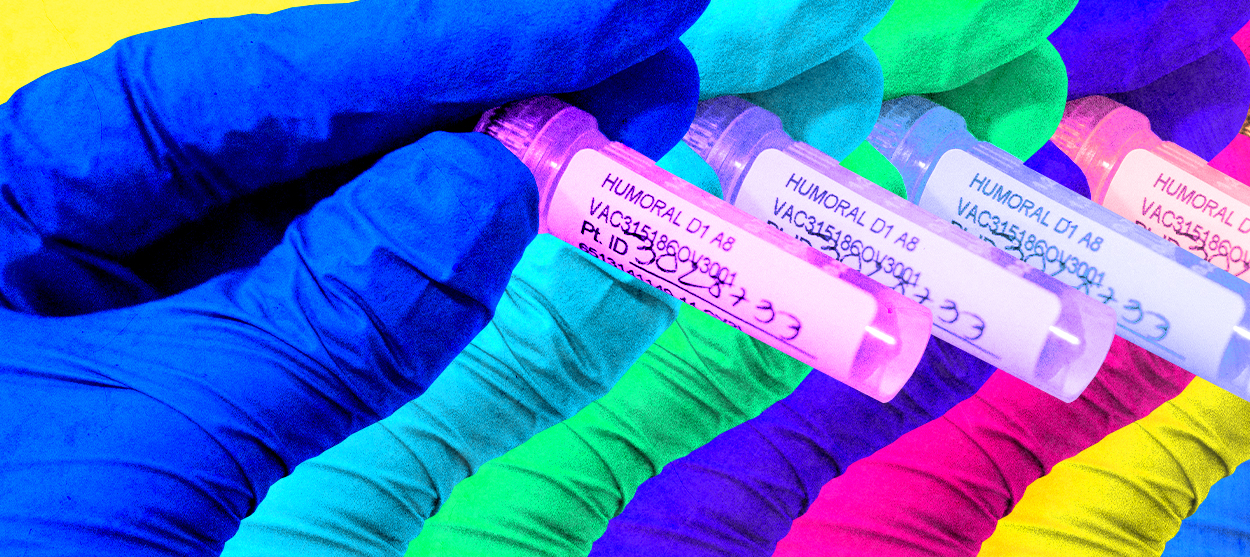Solving COVID: January 20, 2021
Johnson & Johnson vaccine candidate shows promise, new research on immunity, and more

- 1. Johnson & Johnson trials show single-shot COVID-19 vaccine effective
- 2. Contracting coronavirus may prevent against reinfection for months, preliminary study finds
- 3. Israeli study suggests Pfizer COVID-19 vaccine decreases virus transmission
- 4. India launches massive vaccination campaign
- 5. Cheap, 'generic' drug reduces COVID-19 death risk by 75 percent, trials suggest
A free daily email with the biggest news stories of the day – and the best features from TheWeek.com
You are now subscribed
Your newsletter sign-up was successful
1. Johnson & Johnson trials show single-shot COVID-19 vaccine effective
Johnson & Johnson's coronavirus vaccine proved safe and provoked an immune response in young and elderly volunteers alike, according to trial results published in the New England Journal of Medicine. Most trial participants got just one shot of a high or low vaccine dose, or a placebo, although some people aged 18 to 55 got two doses. Most of the volunteers who got the vaccine produced the neutralizing antibodies, which defend cells from the virus, after 28 days. Researchers reported some side effects, including fever, fatigue, headache, and pain at the injection site. Dr. Paul Stoffels, chief scientific officer at J&J, said the data gave the company "confidence" the vaccine will prove highly effective. Results from the larger phase-three trial are expected later this month.
2. Contracting coronavirus may prevent against reinfection for months, preliminary study finds
A study yet to be peer reviewed has found those who contract COVID-19 appear to have high immunity for at least five months. Public Health England tested 21,000 health-care workers across the U.K. and found 6,614 of them had antibodies against COVID-19, indicating they'd contracted the virus in the past. But 44 had possibly gotten the virus again despite their antibodies, resulting in an 83 percent chance of protection against reinfection over five months. Still, it's very possible for people who've gotten the virus to contract it again, the study notes. Likewise, those who are seemingly immune to the virus may still transmit it to other people, showing why it's still important to wear a mask and take other precautions. The study will keep monitoring the workers for a year.
The Week
Escape your echo chamber. Get the facts behind the news, plus analysis from multiple perspectives.

Sign up for The Week's Free Newsletters
From our morning news briefing to a weekly Good News Newsletter, get the best of The Week delivered directly to your inbox.
From our morning news briefing to a weekly Good News Newsletter, get the best of The Week delivered directly to your inbox.
3. Israeli study suggests Pfizer COVID-19 vaccine decreases virus transmission
A new study from Israel's Sheba Medical Center in Tel Hashomer suggests the Pfizer/BioNTech COVID-19 vaccine may reduce transmission of the virus. The small study of 102 medical workers found that after the second dose of the vaccine, 100 of the subjects had significantly higher levels of antibodies than even people who recovered from severe COVID-19 infections, The Jerusalem Post reports. "The results of the survey are in line with Pfizer's experiment and even better than expected," said Prof. Gili Regev-Yochay, director of Sheba's Infectious Disease Epidemiology Unit. It isn't clear how long immunity will last, and the results are preliminary, but Regev-Yochay said "it's encouraging and reasonable to assume that [fully vaccinated] people will not be carriers or contagious, although that is still not a direct conclusion."
International Business Times The Jerusalem Post
4. India launches massive vaccination campaign
India has begun what is likely the world's largest coronavirus vaccination rollout. The country's first dose was administered to a sanitation worker at the All Indian Institute of Medical Sciences in New Delhi on Saturday. The government of the world's second most populous nation is hoping to provide shots for 300 million people by the summer, beginning with 30 million frontline health-care workers, followed by 270 million people who are either over 50 years old or have illnesses that make them particularly vulnerable to COVID-19. New Delhi has granted emergency approval to the vaccine produced by the University of Oxford and AstraZeneca, which also received the greenlight in the United Kingdom, as well as one developed by Bharat Biotech, an Indian pharmaceutical company. The latter has gone through early stage trials, but Bharat Biotech has yet to provide any data.
A free daily email with the biggest news stories of the day – and the best features from TheWeek.com
The Associated Press The Washington Post
5. Cheap, 'generic' drug reduces COVID-19 death risk by 75 percent, trials suggest
Ivermectin, a cheap and "generic" antiparasitic drug "used all over the world," may significantly reduce the risk of death in patients suffering from moderate to severe cases of COVID-19, researchers have found. The University of Liverpool's Andrew Hill and others carried out a meta-analytical breakdown of 18 studies that showed the drug — which is commonly used to treat lice and scabies, as well as some more serious parasites — appears to reduce inflammation and eliminate the coronavirus swiftly, The Financial Times reports. In six of those trials, the mortality risk was cut by 75 percent in patients with more serious COVID-19 infections. Hill said he's encouraged by the findings, but further studies are needed, especially since several of those in the analysis were not peer-reviewed. FT also notes that meta-analyses, which look at many studies at once, can be prone to errors.